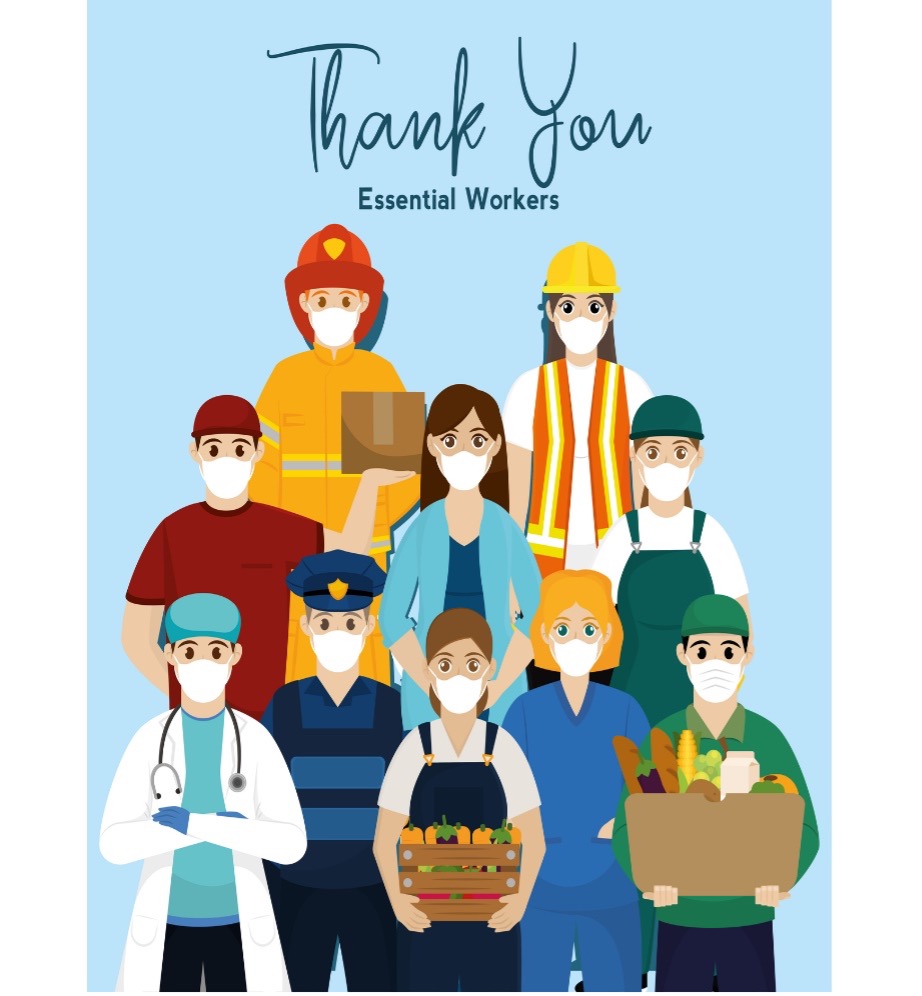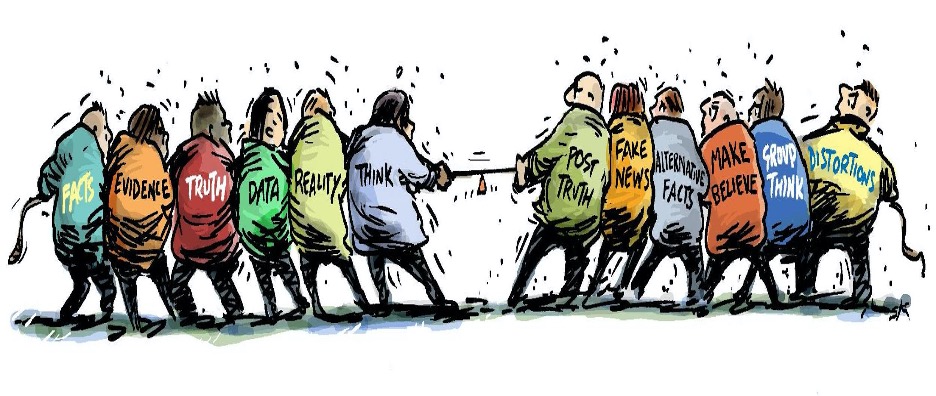I am Michael Quinn Patton of Utilization-Focused Evaluation offering ruminations on evaluators as essential workers as a contribution to the American celebration of Labor Day on September 6.

The pandemic has spotlighted and elevated essential work. Who are essential workers? Certainly frontline and emergency medical personnel, first responders, and all who maintain our infrastructure are deemed essential. But the pandemic expanded who is essential to include grocery store and restaurant workers, nursing home caregivers, and teachers. Epidemiologists and vaccinators are now esteemed as essential workers.
Are Evaluators Essential Workers?
The answer depends on your answer to other questions. Are facts are essential? Is knowledge essential? Is evidence of effectiveness essential? Is it essential to distinguish what works from what doesn’t? Is pursuit of truth essential? Facts, knowledge, evidence, and truth are at risk. As evaluators we have responsibility to find and speak the truth about the things we evaluate. But all of us are involved in the larger battle supporting, knowledge, science, and truth beyond the findings of any particular evaluation. Beyond the pandemic, we are embattled in a global infodemic.
Infodemic
The term infodemic conveys the rapid and far-reaching spread of misinformation. As false information is disseminated through social media, especially in a major crisis, it fuels fear, anger, distress, and inappropriate actions that make the problem worse like the widespread dissemination of misleading, unsubstantiated, and dangerous medical advice. The infodemic is fed by fake news, distortions of facts, outright lies, outrageous conspiracy theories, and anti-science propaganda. Infodemics breed distrust, suspicion, interpersonal conflict, and societal polarization.

A study of tweets by researchers at the Massachusetts Institute of Technology found that falsehoods were 70% more likely to be retweeted than true stories and that misinformation traveled six times faster.[iii]
So, wherever and whenever you evaluate, whatever constitutes your sphere of influence, it is essential that you are informed about critical issues like climate change, social injustices, global inequities, and pandemic science. We all have an essential responsibility to promote truth against falsity, facts against lies, accurate information against misinformation, and realities versus illusions. As a global community, we represent dialogue over deception, engagement with evidence over its suppression, reality-testing over reality-denying, real and valid data versus fabrications, equitable access to information versus censorship, and transparency versus secrecy. Whether the issue is how Covid-19 is spread, how much vaccinations work, why climate change threatens humanity, whether the increasing concentration of wealth undermines the common good, how pervasive, insidious, and systemic racism prevails, and how pollution of land, air, water jeopardizes the sustainability of life on earth, we are called on to study the issues, seek the facts, distinguish what is known from unknown, communicate the evolving nature of science and knowledge, and labor in the vineyards of knowledge rather harvesting grapes of wrath and promulgating social and political calumny.

Hot Tip:
“Let’s sing our way out of this.” Mexican poet Isabel Fraire.
Implementing her Hot Tip: Musical Tribute to Evaluators as Essential Workers by MQP
Rad Resource:
“Who are essential workers?” Economic Policy Institute.
Rad Resource:
Poet Amanda Gorman honors essential worker heroes
[i] “Thank you Essential Workers” permission to use Illustration 200435113 © Davids47 | Dreamstime.com
[ii] “Tug-of-War” and “Four Horsemen of Calumny” Cartoons by Simon Kneebone used with permission from Utilization-Focused Evaluation, 5th edition, M.Q.Patton & Charmagne E. Campbell-Patton (2021, Sage).
[iii] Vosoughi, S., Roy, D., & Aral, S. (2018, March 8). The spread of true and false news online. Science 359(6380), 1146–1151.
Do you have questions, concerns, kudos, or content to extend this aea365 contribution? Please add them in the comments section for this post on the aea365 webpage so that we may enrich our community of practice. Would you like to submit an aea365 Tip? Please send a note of interest to aea365@eval.org. aea365 is sponsored by the American Evaluation Association and provides a Tip-a-Day by and for evaluators. The views and opinions expressed on the AEA365 blog are solely those of the original authors and other contributors. These views and opinions do not necessarily represent those of the American Evaluation Association, and/or any/all contributors to this site.

Thank you so much, Michael for sharing these wonderful insights. I had actually not looked at it from that angle and was wondering why for example all of a sudden, during the pandemic, the evaluation function was relegated to the periphery and all concentration was on “Covid-19 Response”, without taking into consideration what works, where and for whom and what does not work. This is enlightening! I have to share this with my students!